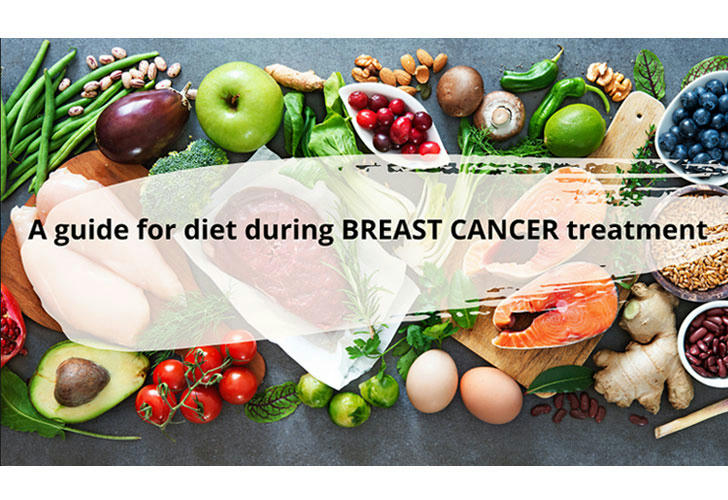What Should Patients With Breast Cancer Eat?
Breast cancer is a significant health concern for many women and men in the United States. While treatment options such as surgery, radiation, chemotherapy, and hormone therapy are essential for managing the disease, nutrition also plays a crucial role in supporting overall health and recovery. This article will discuss the best foods for patients with breast cancer, along with some recommended products to help enhance your diet.

Understanding Breast Cancer Treatment
Breast cancer treatment varies depending on the type and stage of cancer. Common treatment options include:
Surgery: Removal of the tumor or entire breast (mastectomy).
Radiation Therapy: Targeted radiation to kill cancer cells.
Chemotherapy: Use of drugs to kill or slow the growth of cancer cells.
Hormone Therapy: Medications that block hormones that fuel certain types of breast cancer.
Targeted Therapy: Drugs that specifically target cancer cell characteristics.
While undergoing treatment, patients may experience side effects such as nausea, fatigue, and changes in appetite. A balanced diet can help manage these symptoms and support recovery.
Recommended Foods for Breast Cancer Patients
1. Leafy Green Vegetables
Examples: Spinach, kale, collard greens
Benefits: Rich in vitamins A, C, E, and K, as well as antioxidants that may help protect against cancer progression.
2. Cruciferous Vegetables
Examples: Broccoli, cauliflower, Brussels sprouts
Benefits: Contain glucosinolates which may help reduce the risk of breast cancer through their anti-cancer properties.
3. Berries
Examples: Blueberries, strawberries, raspberries
Benefits: High in antioxidants and vitamin C, which can help combat oxidative stress and inflammation.
4. Fatty Fish
Examples: Salmon, mackerel, sardines
Benefits: Rich in omega-3 fatty acids that have anti-inflammatory properties and may reduce the risk of breast cancer.
5. Nuts and Seeds
Examples: Walnuts, flaxseeds, chia seeds
Benefits: Provide healthy fats and are high in fiber; flaxseeds are particularly rich in lignans which may have protective effects against breast cancer.
6. Whole Grains
Examples: Brown rice, quinoa, whole wheat bread
Benefits: High in fiber which can help maintain a healthy weight and stabilize blood sugar levels.
7. Legumes
Examples: Beans, lentils, chickpeas
Benefits: Excellent sources of protein and fiber; they help support digestive health and provide essential nutrients.
8. Citrus Fruits
Examples: Oranges, grapefruits, lemons
Benefits: High in vitamin C and flavonoids that may have protective effects against cancer.
9. Garlic and Onions
Benefits: These allium vegetables contain organosulfur compounds that may enhance immune function and have anti-cancer properties.
10. Herbs and Spices
Examples: Turmeric (curcumin), ginger
Benefits: Have anti-inflammatory properties that can support overall health during treatment.
Foods to Avoid
While focusing on beneficial foods is crucial, patients should also be mindful of what to avoid:
1. Processed Foods
High in unhealthy fats, sugars, and additives that can promote inflammation.
2. Red and Processed Meats
Linked to an increased risk of various cancers; limit intake to reduce potential risks.
3. High-Sugar Foods
Can lead to weight gain and increased inflammation; avoid sugary snacks and beverages.
4. Alcohol
Excessive consumption can increase the risk of breast cancer recurrence; moderation is key if consumed at all.
5. Refined Carbohydrates
Limit white bread, pastries, and other refined grains that can spike blood sugar levels.
Recommended Products
1. Omega-3 Supplements
If you don’t consume enough fatty fish, consider omega-3 supplements.
2. Flaxseed Meal
A great source of omega-3 fatty acids and lignans.
3. Antioxidant-Rich Snack Bars
Look for bars containing nuts, seeds, and dried fruits high in antioxidants.
4. Herbal Teas
Consider teas with anti-inflammatory properties like ginger or turmeric.
5. Cookbooks Focused on Cancer Nutrition
Consider cookbooks that provide recipes rich in beneficial nutrients for cancer patients.
Conclusion
While breast cancer treatment is multifaceted involving medical interventions such as surgery or chemotherapy, nutrition plays a vital role in supporting recovery and overall health. By focusing on a diet rich in fruits, vegetables, whole grains, healthy fats, and lean proteins while avoiding processed foods and excessive sugars or alcohol, patients can take proactive steps toward managing their condition effectively.
Always consult with a healthcare provider or registered dietitian before making significant dietary changes or if you have specific concerns about your condition. By prioritizing these dietary strategies and considering appropriate supplements when necessary, individuals with breast cancer can improve their quality of life during treatment and beyond.
